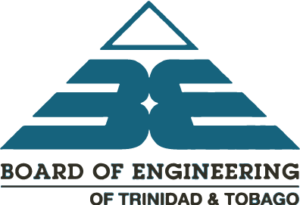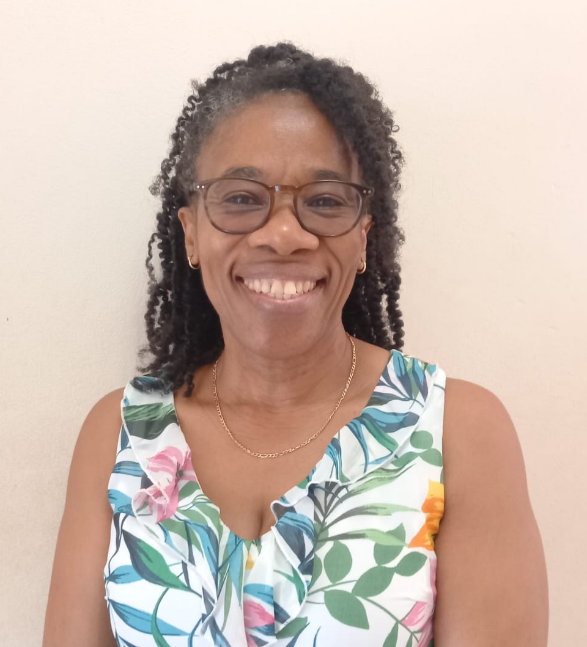Andrea Abel, BSc, MSc, MAPETT, R. Eng.
A Chat with Engineering Executive, Andrea Abel, on the occasion of International Women in Engineering Day
International Women in Engineering Day celebrated on 23rd June each year is an opportune time for the BOETT to celebrate this occasion with an interview of one of its registered female Engineering Executive. Women make up 16 percent of the Engineers registered with the BOETT and this compare favourably with a country like the USA in which women make up around 20% of engineering graduates, given that not all female engineering graduates in Trinidad and Tobago are BOETT registered. It means that women engineers, like our interviewee Engineer Andrea Abel, have made their way to the top level of the profession by virtue of their proven competency, capability and perseverance in the face of unique challenges.
Engineer Abel is a Geotechnical Engineer who 30 years ago started as the Head of the Geotechnical Department of Trintoplan Consultants Limited, one of the oldest engineering practice in Trinidad and Tobago. She served as head of the Civil Projects Division before assuming the role of the Managing Director in January 2007. Over the last 17 years of her tenure as Managing Director she has led the firm during the most challenging period the company, like many others, has faced in its entire existence
Engineer Abel’s 35 years’ experience in engineering practice includes work in Trinidad and Tobago, the English speaking Caribbean and Canada. She graduated from the University of the West Indies with a BSc in Civil Engineering (First Class Honours) (1986) and graduated from Queen’s University, Kingston, Ontario, Canada with an M.Sc. Geotechnical Engineering (1990).
Engineer Abel shares with us some of the unique challenge she has overcome in the workplace, her balancing of executive and family responsibilities, how gender diversity can benefit the engineering industry, her proudest achievement, and advice to young women aspiring to pursue a career in engineering.
Q1. What inspired you to pursue a career in engineering, and how did you navigate your path to becoming an Executive in this field?
I was born and raised in Jamaica, in a family where academic achievement was very important. My parents were both teachers and they expected nothing less that the best from all of their five children. From a very early age, I had a leaning towards Mathematics and the other science subjects. I was encouraged by my Additional Mathematics teacher, Mrs. Scholefied, in Form 4 at the Immaculate Conception High School in Kingston Jamaica to pursue this as a career. I initially wanted to pursue a career in Actuarial Sciences. However, in the early 1980’s, that would have necessitated study in the United States of America. At that time, there were no options at UWI for pursuing that career path and my parents could not afford to fund study in the USA. Therefore, I went for the available option which was to study engineering at UWI.
Q2. As a female leader in engineering, what challenges have you faced along the way, and how have you overcome them?
I started my engineering career approximately 38 years ago. At that time there were less women in engineering than there are now. In my early career, I lived and worked in Canada where there was an even lower ratio of women in engineering than in the Caribbean. In my time in Canada, I worked in a construction setting, mostly with men with a lower level of education. Many of them could not wrap their minds around a female person understanding construction issues or being on a construction site. There were times that the work environment was a bit hostile. However, I resolved to stand my ground in every instance in which I knew that I was correct. When I was not sure, I kept an open mind to what the workers had to say and did my research at night to make sure that the following day, I knew the correct answer to the problem at hand. It became apparent that they gained respect for me for listening to them, doing my homework, maintaining my principles and not compromising on quality. I have tried to maintain this approach to this day.
Another challenge that I faced relatively early in my career was balancing my domestic responsibilities with my work. As a geotechnical engineer often doing work in other islands of the Caribbean, it was particularly challenging when my children were young. I did as best as I could to reduce my external travel schedule. I achieved this by training some of my technicians and junior engineers in aspects of Geotechnical Engineering which made them competent to do those trips without me. This achieved two things, 1) it built capacity in my organization and 2) it gave me the necessary flexibility to be available to my children.
Q3. In what ways do you believe that gender diversity can benefit the engineering industry?
It is a fact that 50% of the world is female and therefore women comprise a significant market for most products. In this regard, women can bring perspective on design issues that affect them. Unfortunately, there are many engineered products that have an in-built gender bias. One of the most obvious examples is the automotive industry. Cars are less safe for women than for men because most safety features were designed based on the size and weight of the average man. Crash test dummies used in designs are not of a weight and height representative for the majority of women. Therefore, seatbelt location height and tension, the placement of airbags, the height of the dashboard and steering wheel are less safe for women than men. There is a study which shows that women are 47% more likely to be seriously injured, 71% more likely to me moderately injured and 17% more likely to die when involved in a car crash. Cars are even less safe when they are used while being pregnant. Seat belts just don’t fit pregnant women properly. If there were more women involved in these designs, there could be a removal of the bias in the testing of safety features. Other examples of design bias include the size of smart phones which cannot fit into the pocket of the average woman. Most women can identify with these issues.
Q4. Can you share any experiences where your unique perspective as a woman has contributed to innovative solutions or approaches within your engineering projects?
I am honestly not sure how to respond to that question. However, based on conversations I have had with some of my staff members they have told me the following:
- Being a woman, I have been more willing to listen to the client, understanding their needs and getting that reflected in the design process.
- With respect to the work environment, I have been more accommodating to creation of a workplace culture that shows some interest in the well-being of the staff. This includes giving staff some flexibility in work hours, allowing staff to deal with their domestic affairs. Because employees feel valued, they are more loyal and consequently more productive.
Q5. What advice would you give to young women aspiring to pursue a career in engineering, especially those who may be hesitant due to gender stereotypes or biases?
To the prospective engineer; the worst thing in life is regret. If this is what you have a passion for, ignore the naysayers. Choose the career that would make you happy, rather than spending a lifetime wondering if you should have taken the plunge.
Q6. International Women in Engineering Day celebrates the achievements of women in engineering. What achievements or milestones in your career are you most proud of?
My proudest achievement is taking my organization through the process of becoming ISO 9001 certified and in maintaining that certification over the past 15 years despite other challenges that the company has.
Q7. What initiatives or strategies do you think are most effective in encouraging more women to enter and thrive in the engineering profession?
It is necessary for any prospective engineer to have a strong grounding in Mathematics and Physics. For students studying at the University of the West Indies, the basic entry requirements are Mathematics and Physics to CAPE Level or equivalent. Our educational system requires students to pick their subjects by Form 3. Our students are often forced to make a career decision when they are 14 or 15 years old, and in many instances before they are equipped to make such a life changing decision. Therefore, if this opportunity is missed, it is very difficult to correct. We therefore have to reach girls in the very narrow window of Form 1 and 2 in doing career guidance. This can be facilitated by having women engineers making themselves available for career days in schools. This is possibly an initiative that could be taken up by APETT. In terms of encouraging women to thrive, it is necessary for employers to display more sensitivity issues to women in the workplace, particularly in their prime childbearing years.
Q8. How do you balance the demands of your executive role with your personal life, and do you have any tips for achieving work-life balance in a demanding field like engineering?
The key for that is to set priorities. I am the mother of three children. For career women, there is often a feeling that it is not possible to do both well. We may struggle with the guilt of not being able to be excellent in both.
Whilst anyone can be an engineer, I am the only person who can be MY children’s mother. Therefore, I had to make a choice to give them the due attention during the critical first 10 years of their lives.
Therefore, when I had extra work demands or hard deadlines, my sleep suffered. On the domestic front, I was forced to use my engineering and planning skills. This included doing food preparation for breakfast and lunches on evenings when my children had gone to bed. I also delegated chores to my children at least one day per week and also on weekends, so that they participated in the efficient running of the household. This had the dual effect of reducing the domestic load on any family member and also teaching my children skills that have made them into independent adults. I also give credit to my husband without whose unfailing support I would not have been able to cope.
In all of this, I have also achieved work-life balance through my passion for road running and in the last six years I have ran 48 races including the UWI half Marathon on four occasions
Q9. Finally, how do you perceive the current state of the engineering industry in which you’re involved? What are some significant trends or challenges that you’ve observed?
I am constantly disappointed when persons who should know better act unethically or without due consideration and care. When this happens at the level of senior persons in the industry it saddens me. During the COVID era, we had no choice but to go online in work, but also in teaching and learning spaces. With the rise in the use of Artificial Intelligence, a trend has developed in which persons are passing off other’s work as their own. This is intellectual laziness and it causes a “dumbing down” of the industry. I have a great concern for many of our engineering graduates over the past 3 years, in that they have developed bad habits with respect to plagiarism. If this is not corrected our industry will be in trouble in the next 20 years.


